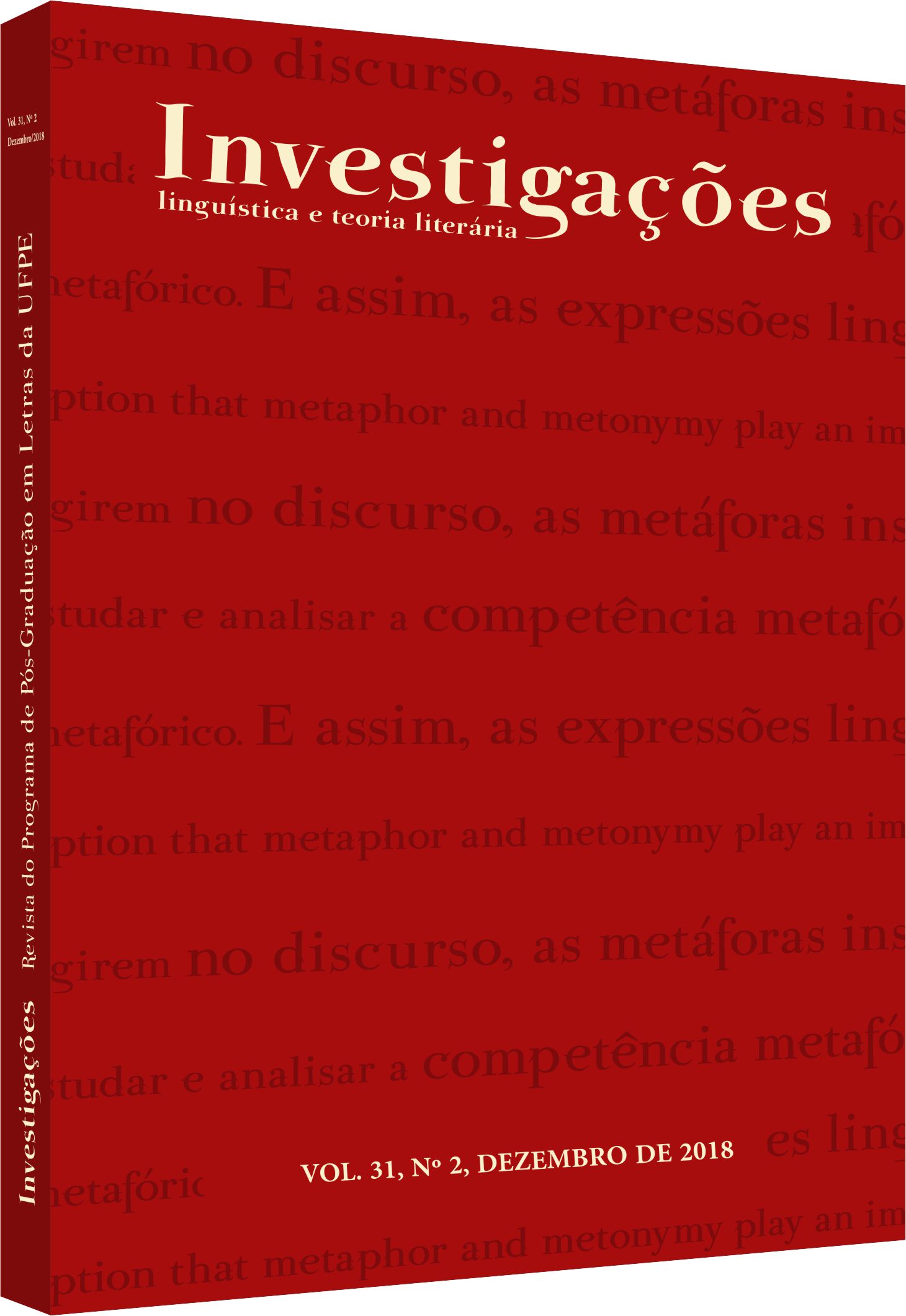Eles não sabem o que fazem?: o discurso cínico e ideologia de gênero
DOI:
https://doi.org/10.51359/2175-294x.2018.237498Abstract
Neste trabalho, propomos uma análise do discurso sobre a ideologia de gênero, noção que passa a circular na sociedade brasileira a partir das discussões sobre o Plano Nacional de Educação. Nosso objetivo é demonstrar como os saberes sobre a noção de “ideologia do gênero” são afetados ideologicamente pelo discurso conservador, que se manifesta tanto no âmbito político quanto no religioso. Mostraremos a análise de um corpus que faz referência a como esses sentidos circulam no espaço pedagógico, a partir de três imagens que trataremos como sequências discursivas e que revelam o funcionamento do cinismo no discurso.References
ALTHUSSER, Louis. Ideologia e aparelhos ideológicos de estado. Lisboa: Editorial Presença/ Martins Fontes, s/d.
BRASIL. Plano Nacional de Educação. Lei nº 13.005, de 25 de junho de 2014, que aprova o Plano Nacional de Educação (PNE) e dá outras providências. Atualizada em 1/12/2014. Disponível em http://www.observatoriodopne.org.br/uploads/reference/file/439/documento-referencia.pdf. Acesso em jul 2018.
BUTLER, Judith. Problemas de gênero: feminismo e subversão da identidade. Rio de Janeiro: Civilização Brasileira, 2015.
COURTINE. El concepto de formación discursiva. In: BARONAS, Roberto L. Análise do discurso: apontamentos pata uma história da noção-conceito de formação discursiva. São Carlos: Pedro e João Editores, 2007.
HERBERT, Thomas. Observações para uma teoria geral das ideologias (1967). Traduzido por ZUCHIOLO, Carolina M. R., ORLANDI, Eni e NUNES, José H. Revista Rua. Campinas. Vol 1, p. 63-89, 1995.
HORTA NUNES, José. Leitura de arquivo: historicidade e compreensão. In: INDURSKY, FREDA e LEANDRO FERREIRA, Maria Cristina. Análise do Discurso no Brasil: mapeando conceitos, confrontando limites. São Carlos: Claraluz, 2007.
INDUSRKY, Freda. Da interpelação à falha no ritual: a trajetória teórica da noção de formação discursiva. In: BARONAS, Roberto L. Análise do discurso: apontamentos pata uma história da noção-conceito de formação discursiva. São Carlos: Pedro e João Editores, 2007.
ORLANDI, Eni. A linguagem e seu funcionamento: as formas do discurso. Campinas: Pontes, 1983.
PÊCHEUX, Michel. Semântica e discurso: uma crítica à afirmação do óbvio (1975). Tradução de Eni Pulcinelli Orlandi et al. 2. ed. Campinas, SP: Editora da UNICAMP, 2009.
ZIZEK, Slavoj. Como Marx inventou o sintoma. In: ZIZEK, Slavoj. Um mapa da ideologia. Rio de Janeiro: Contraponto, 2010.
ZIZEK, Slavoj. Eles não sabem o que fazem: o sublime objeto da ideologia. Rio de Janeiro: Jorge Zahar, 1992.
Downloads
Published
How to Cite
Issue
Section
License
Copyright (c) 2018 Mônica Ferreira Cassana

This work is licensed under a Creative Commons Attribution 4.0 International License.
Authors who publish with Revista Investigações agree to the following terms:
Authors retain copyright and grant the journal right of first publication with the work simultaneously licensed under the Creative Commons Attribution 4.0 International (CC BY 4.0) license that allows others to share the work with an acknowledgement of the work's authorship and initial publication in this journal.
Authors are able to enter into separate, additional contractual arrangements for the non-exclusive distribution of the journal's published version of the work (e.g., post it to an institutional repository or publish it in a book), with an acknowledgement of its initial publication in this journal.
You are free to:
Share — copy and redistribute the material in any medium or format for any purpose, even commercially.
Adapt — remix, transform, and build upon the material for any purpose, even commercially.
The licensor cannot revoke these freedoms as long as you follow the license terms.
Under the following terms:
Attribution — You must give appropriate credit , provide a link to the license, and indicate if changes were made . You may do so in any reasonable manner, but not in any way that suggests the licensor endorses you or your use.
No additional restrictions — You may not apply legal terms or technological measures that legally restrict others from doing anything the license permits.

